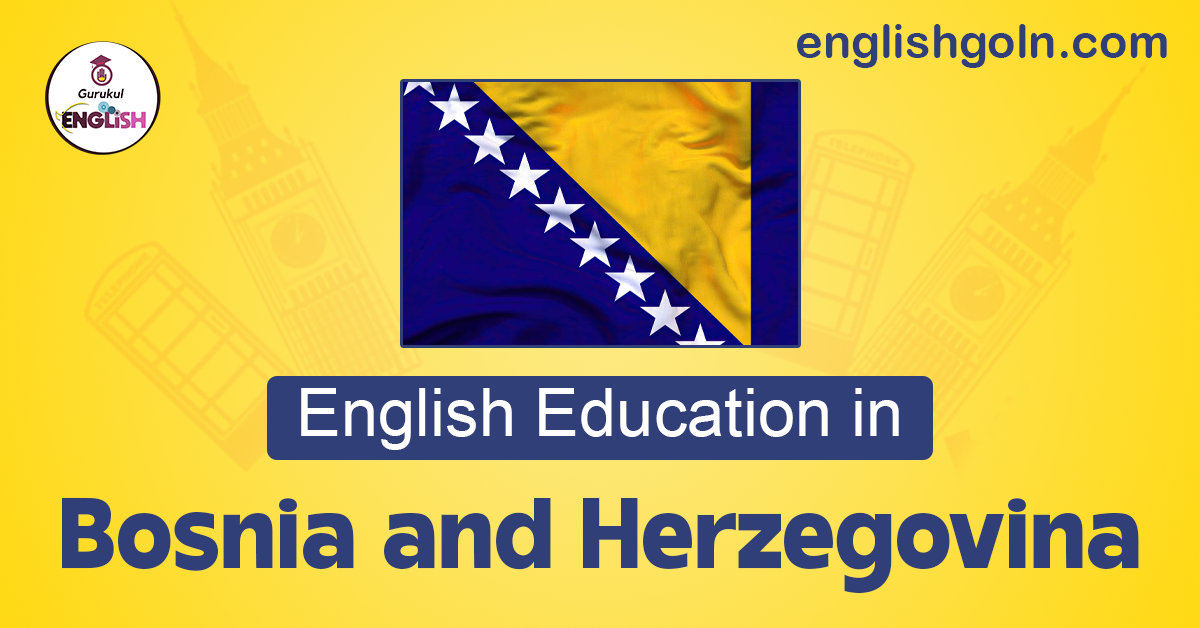Bosnia and Herzegovina, a country nestled in the Balkans, has a diverse linguistic landscape due to its complex history and multicultural heritage. English education in Bosnia and Herzegovina has been gradually gaining momentum, driven by the country’s aspiration to be globally connected, economically competitive, and culturally enriched. In this article, we will explore the historical context, the current state, challenges, and the way forward for English education in Bosnia and Herzegovina.
English Education in Bosnia and Herzegovina

Historical Context
The linguistic diversity in Bosnia and Herzegovina is a product of its intricate history, marked by various influences from the Ottoman Empire, Austro-Hungarian rule, and Yugoslav era. The country has three official languages: Bosnian, Croatian, and Serbian, all based on the same linguistic root, but with distinct regional variations. Additionally, many citizens speak other languages, including German, Italian, and English, which are taught in schools as foreign languages.
During the Yugoslav era, Russian was the dominant foreign language taught in schools. However, after the disintegration of Yugoslavia in the early 1990s, there was a shift towards emphasizing English education as a means of fostering global connections and enhancing economic opportunities.
Current State of English Education
English education in Bosnia and Herzegovina has made significant progress, especially in urban centers and regions with a more international outlook. English is now widely taught as a foreign language in primary and secondary schools, and it is increasingly becoming a mandatory subject in higher education institutions.
English language teaching in Bosnia and Herzegovina is primarily focused on developing students’ language proficiency, including speaking, listening, reading, and writing skills. Language proficiency tests, such as TOEFL and IELTS, are recognized and widely used for assessing English language competency.
The adoption of English in higher education institutions is evident, with many universities offering English-taught degree programs to attract international students and promote academic exchange. This has contributed to a more cosmopolitan atmosphere in these institutions and has facilitated greater international collaboration.
Furthermore, Bosnia and Herzegovina’s membership in international organizations and its aspiration to join the European Union have fueled the demand for English proficiency in various sectors, including business, tourism, and diplomacy.
Challenges in English Education
Despite the progress made, English education in Bosnia and Herzegovina faces several challenges:
- Resource Constraints: Many schools and institutions lack adequate resources, including qualified teachers and up-to-date teaching materials. Limited budgets and funding constraints often hinder the development of comprehensive English language programs.
- Teacher Training: While there are many enthusiastic English language teachers in the country, the need for further professional development and training is essential. Training programs should focus on enhancing pedagogical skills and adopting innovative teaching methodologies.
- Regional Disparities: English education is more accessible in urban centers and regions with a stronger international presence. However, rural and remote areas may have limited access to English language instruction.
- Code-Switching: Due to the historical linguistic influences, students may frequently code-switch between different languages, which can hinder their English language proficiency development.
- Attitude and Motivation: The perception of English as a necessary skill for success varies among students and parents. Promoting a positive attitude towards language learning and fostering intrinsic motivation can improve learning outcomes.
The Way Forward
To address the challenges and enhance English education in Bosnia and Herzegovina, several strategies can be considered:
- Investment in Education: Increased investment in education, especially in English language programs, can help improve the quality of teaching, provide better resources, and attract qualified teachers.
- Teacher Development: Offering regular professional development opportunities for English language teachers will ensure that they are equipped with the latest teaching methods and techniques.
- Public Awareness Campaigns: Raising awareness about the importance of English language proficiency and its potential benefits can foster a more positive attitude towards language learning.
- Digital Resources: Integrating technology and e-learning platforms into English language instruction can make learning more interactive and accessible, particularly in remote areas.
- Cultural Exchange Programs: Facilitating cultural exchange programs, student exchanges, and partnerships with foreign institutions can expose students to real-life language experiences and encourage them to use English in practical settings.
- Support for Multilingualism: While English is vital for global connectivity, supporting and preserving the country’s native languages is equally important. A balanced approach that values multilingualism can enhance cultural diversity and national identity.
Conclusion
English education in Bosnia and Herzegovina plays a pivotal role in the country’s aspirations for global connectivity, economic competitiveness, and cross-cultural understanding. Despite the challenges, the country has made significant strides in promoting English proficiency, especially in higher education and urban areas. To sustain and enhance this progress, investments in education, teacher training, and public awareness campaigns are essential. Furthermore, embracing multilingualism while emphasizing English proficiency will ensure a more inclusive and culturally enriched future for Bosnia and Herzegovina on the global stage. Through these concerted efforts, the country can foster a generation of language-literate, globally-connected citizens who are well-equipped to face the challenges and opportunities of the 21st century.
